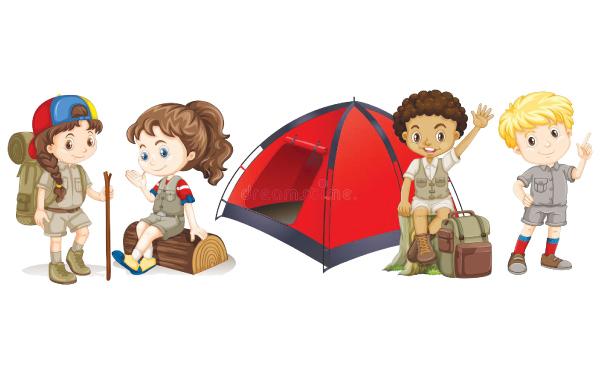
English has borrowed a large number of words and phrases from foreign languages. Here are some of them:
Khaki (Urdu) a dusty brownish yellow cloth widely used for military uniforms
Kimono (Japanese) a long robe with broad sash and wide sleeves
Kindergarten (German) a nursery school or class for children of preschool age
Kiosk (Turkish) a small building in the street where newspapers or sweets are sold
Kismet (Turkish) fate, fortune or destiny
Kitsch (German) something that appeals to popular, often sentimental, taste but is generally regarded as lacking any real artistic merit or taste
Kleptomania (Greek) a compulsion to steal, regardless of economic benefits or of the risk involved
Knapsack (German) a bag used to carry personal belongings on the back
Kowtow (Chinese) to be too eager to obey or be polite to someone in authority
The opposition members do not kowtow to those in the ruling party.
Kris (Malay) a traditional dagger with a jagged serpentine blade
Kudos (Greek) the state of being admired and respected for being important or for doing something important
The minister acquired kudos just by appearing on television.
Kultur (German) state-controlled culture or culture that contributes towards the evolution of society in general
Kung fu (Chinese) the Chinese art of unarmed self-defence
Kung fu incorporates several disciplines including judo and karate.
Labyrinth (Greek) a large network of paths or passages which cross each other, making it very difficult to find your way
Laconic (Greek) using only a few words to say something
“He left,” mother said laconically.
Lacuna (Latin) a place where something is missing in a piece of writing
Lagoon (French) a lake of sea water that is partly separated from the sea by rocks, sand or coral
Laissez-faire (French) the principle that the Government should allow the economy or private businesses to develop without any state control or influence
In Western economies, laissez-faire policies have been largely abandoned for mixed economies.
Largesse (French) when someone gives money or gifts to people who have less than they do, or the money or gifts that they give
Larva (Latin) a young insect with a soft tube-shaped body, which will later become an insect with wings
Larynx (Greek) the part in your throat where your voice is produced
Latex (Latin) a thick white liquid produced by some plants, especially the rubber tree, and used to making rubber, paint and glue
Laureate (Latin) someone who has been given an important prize or honours, especially the Nobel Prize
Wole Soyinka was a Nobel laureate in Nigeria.
Lava (Latin) hot liquid rock that flows from a volcano
Legerdemain (French) sleight of hand, trickery, deception or skill
Leitmotiv / Leitmotif (German) a musical phrase that is repeated several times during a long musical work and represents a particular character or idea
Leviathan (Hebrew) something very large and strong or a very large and frightening sea animal
Liaison (French) the regular exchange of information between groups of people, especially at work, so that each group knows what the other is doing
Libretto (Italian) the words of an opera or musical play
Limbo (Latin) a situation in which nothing happens or changes for a long period of time, and it is difficult to make decisions or know what to do, often because you are waiting for something else to happen first.
